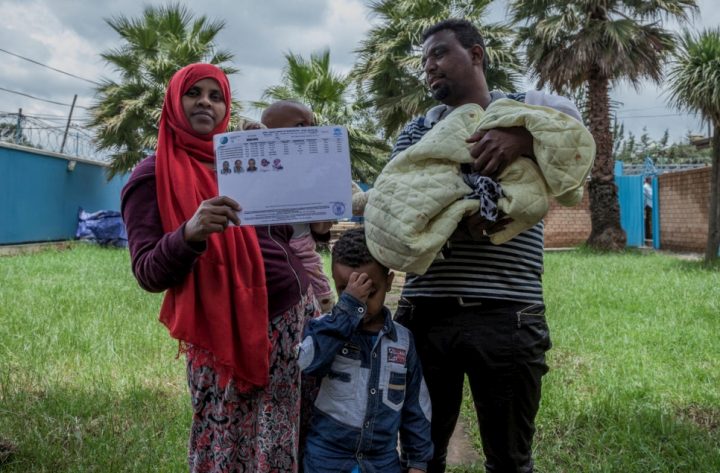
Rahwa, with her family, displays their new and updated proof of registration. © UNHCR/Diana Diaz
In July this year, UNHCR started rolling out a new and enhanced Biometric Identity Management System (BIMS) country-wide. Refugees can now appear at registration centres to have their biometrics taken, including iris scans and 10-digit fingerprints. They will also provide information on their educational and professional skills, as well as family members located in other countries.
This improved data collection system could help to potentially unlock greater opportunities for all refugees, including the right to live outside of the camp or to advance their education. In some instances, the data will be important in reunification of family members abroad. By the end of 2018, all refugees in the country including over 100,000 refugees who arrived in 2017 are expected to be registered in BIMS.
Click here to learn more about this innovative system and how it helped Rahwa Mohammedhagos Mussa and her family.
